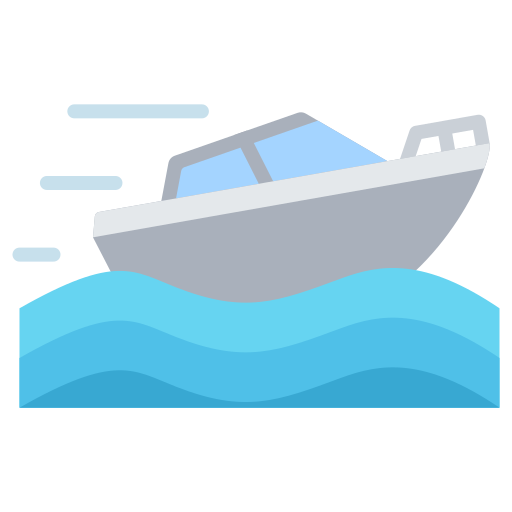Boat design has undergone significant transformations over the years, influenced by advancements in technology, materials, and shifts in consumer preferences. As we look towards 2024, the trends in boat design reflect a complex interplay of environmental consciousness, innovation, and lifestyle changes among boaters. Understanding these trends provides insight into the future of boating and highlights the continuous evolution of maritime craft.
Environmental Sustainability
Sustainability has become a pivotal theme in boat design as concerns for the environment grow. In 2024, boat manufacturers are increasingly focusing on eco-friendly materials and energy-efficient technologies. For instance, many new models are constructed with recyclable composites and natural fibers, reducing the environmental footprint of manufacturing. The use of materials such as hemp, flax, and even recycled plastics is on the rise, as they offer not only a lighter alternative but also a significantly lower carbon lifecycle impact. Furthermore, innovations in resin technologies, including bio-resins derived from plant sources, contribute to a more sustainable production process, minimizing reliance on fossil fuels.
Energy efficiency is also a key element in modern boat design. The integration of hybrid and fully electric propulsion systems has gained momentum, allowing for reduced fuel consumption and emissions during operation. For example, vessel designs are now incorporating solar panels and wind-assisted propulsion, which harness renewable energy to supplement traditional power sources. This not only serves to lower operational costs but also enhances the sustainability profile of marine crafts.
Additionally, advances in hull design and aerodynamics are being utilized to improve overall efficiency. Manufacturers are experimenting with patent-pending designs that reduce drag in water and air, maximizing speed capabilities without significantly increasing fuel usage. A noteworthy mention is the trend toward implementing smart technologies that optimize navigation and route planning, further minimizing the ecological impact while ensuring safety and performance.
Boat manufacturers are becoming more transparent about their production practices, and many are committing to certifications that verify their sustainability efforts. The push for sustainability in the boating industry reflects a broader shift towards environmental accountability, influencing consumer preferences in a market increasingly driven by eco-conscious choices. In an industry where previously traditional methods had dominated, 2024 marks a transitional period where innovation meets sustainability, setting a precedent for future developments in boat design.
Electrification of Boats
One of the most notable trends is the shift towards electrification. With the advancements in battery technologies, electric motors are becoming more common in both small reproductions and larger vessels. In 2024, we can expect:
- New electric models from established brands offering long-range capabilities.
- Integration of hybrid systems that combine traditional fuel engines with electric motors, enhancing efficiency.
- Development of charging infrastructure in popular boating destinations, making electric boating more feasible.
Smart Technology Integration
As smart technology continues to dominate consumer electronics, boats are not left behind. The advent of IoT (Internet of Things) has led to the incorporation of advanced systems designed to improve safety and enhance the user experience. In 2024, we can expect:
- Smart navigation devices that provide real-time weather updates and traffic alerts.
- Automation in operations, such as self-docking features and automated sail adjustment.
- Enhanced onboard connectivity, allowing boaters to stay connected through mobile apps.
Customization and Personalization
Today’s consumers are looking for unique experiences, and boat design in 2024 reflects this desire for customization. Manufacturers are offering a wider array of options for buyers to personalize their boats, including:
- Modular systems that allow owners to reconfigure their deck layout and onboard amenities.
- Choose-from a variety of colors, finishes, and materials to reflect personal taste.
- Technology packages that can be tailored to specific needs, such as fishing, touring, or family outings.
Focus on Space and Functionality
With more people living in urban environments and viewing boats as extensions of their homes, there is a growing emphasis on space efficiency and functionality. In 2024, designers are creating boats with:
- Innovative storage solutions, such as built-in compartments and adaptable furniture.
- Multifunctional spaces to accommodate different activities onboard, whether it be lounging, dining, or working.
- Open layouts that enhance the feeling of space and are more conducive to social interaction.
Performance and Speed
Performance continues to be a vital concern for boat enthusiasts. In 2024, advancements in hull design, such as the use of hydrodynamic models and lightweight frames, are expected to enhance speed and maneuverability. Key innovations include:
- Foil systems that lift the hull out of the water, significantly reducing drag.
- Advanced propulsion systems, such as water jets, that provide increased speed while maintaining fuel efficiency.
- High-performance materials that decrease weight without compromising strength.
Table: Key Trends in Boat Design for 2024
| Trend | Description |
|---|---|
| Environmental Sustainability | Use of eco-friendly materials and technologies to minimize environmental impact. |
| Electrification | Growth of electric and hybrid systems for enhanced efficiency. |
| Smart Technology Integration | Implementation of IoT for improved navigation and safety features. |
| Customization and Personalization | Offering buyers the ability to personalize their boats extensively. |
| Focus on Space and Functionality | Designing boats for efficient space usage and multifunctional environments. |
| Performance and Speed | Advancements in design for enhanced speed and efficiency. |
Conclusion
The evolution of boat design is a testament to the industry’s responsiveness to consumer needs and environmental challenges. As we move into 2024, the blending of sustainability, technology, and personalization measures will define the characteristics of new boat models, ensuring that they are not only functional but also resonate with the values and lifestyles of modern boaters.
